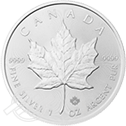Does a Gold IRA Earn Interest?
Whether you’re an investor approaching retirement or dabbling in the market for fun, you have plenty of options to grow your wealth: stocks, bonds, mutual funds, savings accounts, and more.
But today’s economic environment is more chaotic than it has been in decades. And the savviest investors are on the prowl for better ways to preserve their wealth. That includes seeking ways to diversify their portfolios, such as moving investments away from traditional stocks and bonds to tangible assets like gold.
One of the most popular methods of gold ownership involves opening a Gold IRA. While they’re a relatively recent development, Gold IRAs have become a favored method of diversifying retirement investments.
If you’ve considered moving assets to a Gold IRA, you likely have questions about how they differ from other traditional investments. One of those questions might be whether your gold can earn interest.
What Is a Gold IRA?
A Gold IRA is a specific type of self-directed individual retirement account. Whereas a traditional IRA holds stocks or mutual funds, a Gold IRA contains IRS-approved precious metals. Most of the time, the primary investment is in gold. Other precious metals you might hold in a Gold IRA include silver, platinum, and palladium—provided they meet IRS eligibility standards.
In a Gold IRA, an IRS-approved custodian holds the contents for your benefit. Gold IRAs are like traditional ones in that they’re subject to the same tax rules. You cannot remove your assets from the account prior to retirement without incurring a significant tax penalty.
What Is Interest, and How Does It Work?
For borrowers, interest refers to the price a person pays to borrow funds. For investors or savers, it’s the return on an investment. Borrowers typically pay interest as an annual percentage of a loan’s amount (the interest rate). Investors and savers earn interest as an annual percentage yield (APY).
What does this mean for investors? You’ll typically find out in advance of investment in assets whether (and how much) interest you can earn. The longer you hold an asset, the higher the return.
Beyond this simple explanation, however, there are different types of interest you should be aware of. These include (but aren’t limited) to:
- Simple interest: Interest calculated only on the principal amount of the investment.
- Compound interest: Interest that is calculated on the principal and accumulated interest of previous periods. The interest itself also earns interest. It can accrue significantly over a long period.
- Fixed interest: An interest rate that does not change over the life of the investment. It’s predictable and makes it easy for investors to forecast returns.
- Variable (or adjustable) interest: Variable interest can fluctuate over time based on underlying benchmarks or indices. The return on investment can vary, which offers the potential for higher returns and greater risk.
The value of most paper investments is in compound interest, which can significantly grow your earning potential over time. However, interest isn’t the only quality you should look for in an investment.
Do Gold IRAs Accrue Interest?
One of the biggest differences between Gold IRAs and traditional stocks and bonds is that Gold IRAs don’t accrue interest.
Investors typically earn interest on financial assets that can be loaned out or invested in other income-generating vehicles. Because gold is a physical asset that sits in a depository, it can’t generate this income. Instead, its worth comes from its market value and the current value of the U.S. dollar, in which gold is priced. This can fluctuate on several factors, including supply and demand, geopolitical stability, and inflation rates.
Even though gold does not earn interest, it’s still possible to gain value through appreciation. Gold’s price tends to rise over time, especially during periods of economic uncertainty or currency devaluation. Investors turn to gold as a “safe haven” asset because of its intrinsic value for manufacturing, technology, trade, and more.
Gold and the U.S. dollar have an inverse relationship. When the value of the dollar decreases, gold prices tend to go up. That can make it particularly attractive as the purchasing power of the dollar falls.
What Are the Benefits of a Gold IRA?
Even without interest accrual, investing in gold can still be a smart investment play. There are plenty of benefits that make Gold IRAs a worthwhile strategy to stave off inflation and preserve your wealth. Consider the following perks:
- Portfolio diversification: Adding gold to your retirement portfolio reduces the risk of volatility. Because the price of gold often moves inversely to stock markets, you can use it as a hedge against market downturns.
- Hedge against inflation: Gold also preserves purchasing power. If the value of money decreases due to inflation, gold maintains its purchasing power. Including it in an IRA can reduce the risk of your retirement savings’ value eroding.
- Potential for tax-free growth: Depending upon which type of Gold IRA you choose (traditional or Roth), you can benefit from tax-deferred or tax-free growth. This is particularly advantageous for Roth IRA holders, who can make tax-free withdrawals in retirement.
- Protection against currency devaluation: Because it’s a physical commodity, gold retains intrinsic value, especially compared with fiat currencies. That can help you safeguard your assets against currency risks.
- Estate planning efficiency: Physical gold and other precious metals in an IRA can be passed to heirs with relative ease, often without needing complex estate planning strategies. This can make the process of transferring wealth more straightforward.
Do Gold IRA Tax Advantages Outweigh the Lack of Interest?
This is a nuanced question, with an answer that largely depends on factors like your financial goals, risk tolerance, and retirement horizon. Gold IRAs offer unique tax benefits that can be attractive, but you have to weigh them against the potential gains from interest-bearing accounts.
For example, Gold IRAs are like traditional IRAs in that the tax advantages allow for tax-deferred growth. You wouldn’t pay capital gains until the funds are withdrawn in retirement, potentially at a lower tax rate. Roth Gold IRAs offer tax-free growth because those contributions have been made post-tax, which can significantly impact the investment’s net growth over time.
Comparing the potential growth of gold to the compound interest of traditional investments is complex. Interest-bearing investments offer a predictable return over time. Gold’s value—especially in the short term—is more volatile, especially in the short term.
What does that mean for you as an investor? The best course of action is to take stock of your financial goals and risk tolerance and speak with a trusted financial advisor who can offer personalized insights and guidance.
Want to Learn More About Gold IRAs?
Investors have more choices than ever for their retirement savings, and that includes Gold IRAs. If you’re curious about the potential benefits of a precious metal IRA for your investment portfolio, Advantage Gold can help. Request free information about Gold IRAs today.



